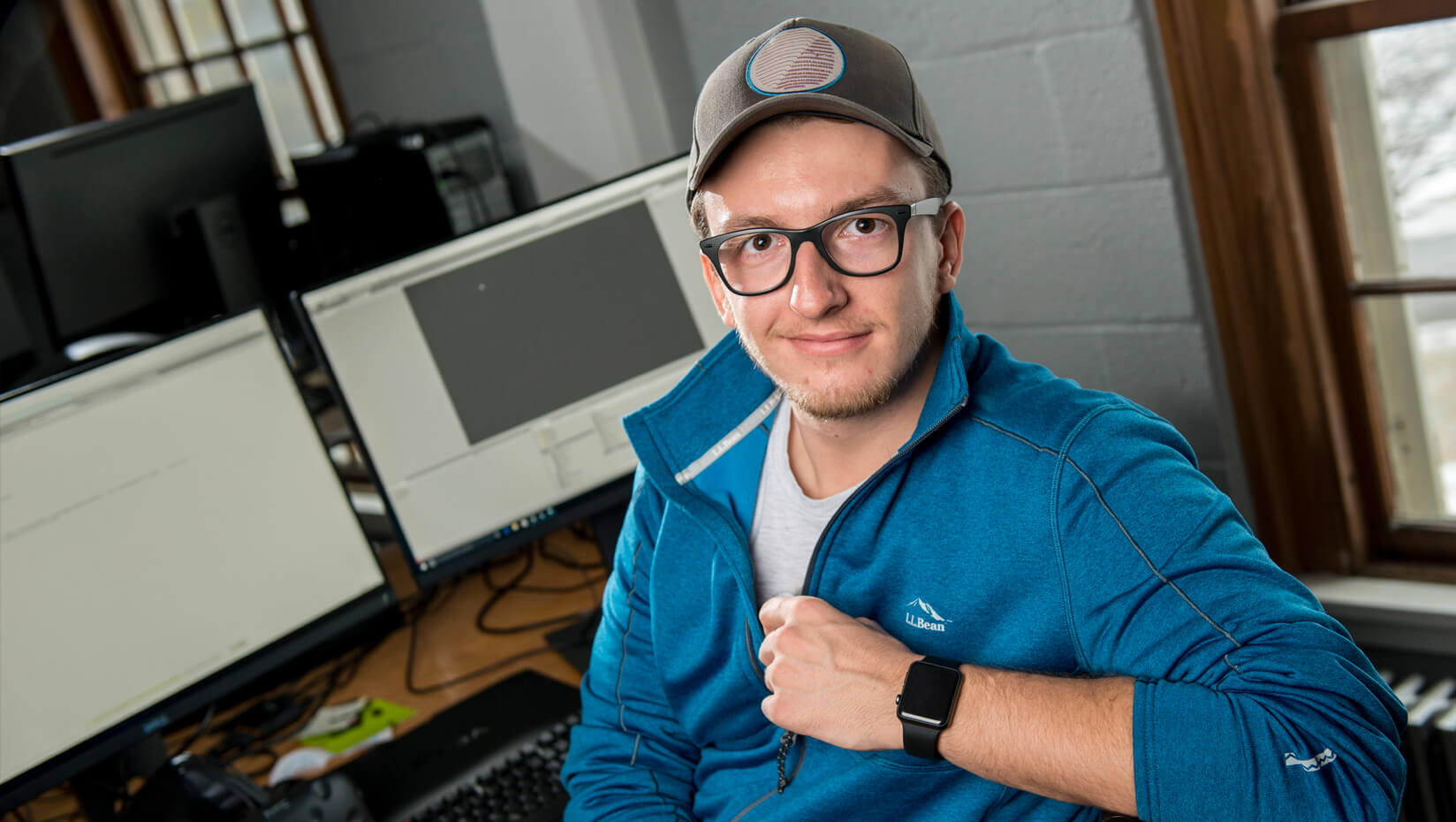
Eric Morrison: Virtual reality installation brings sea farm to life
Transcript
Eric Morrison:
What we’re trying to do is teach young kids, through virtual reality, the basics of what a fish farm is, because that’s just sort of a vague concept that young kids would struggle with. It’s fish on a farm. You think pigs and cows and stuff, but to immerse them and show them, “This is what it looks like in first person, to be inside the fish farm with the fish.”
Basically how this works is there’s an accelerometer in this. If you look, everything in the screen on the front stays relative to where the head is. Little lenses inside that focus your eyes onto the screen back here.
This is showing, it shows up in this random location. This is saying New Vector 3, which is a new vector, a random location.
This was a final project for my New Media 306 class with Mike Scott. He’s had a deal with the Discovery Museum, where we create a proposal. We propose what a exhibit would look like.
Trudi Plummer:
A salmon pen is really not all that interesting. It looks like a giant floating circle on the water surface. Everything that’s interesting in it, it happens underwater.
There really isn’t any good way for us to show that, but the headset allows kids to literally dive underwater into the pen, see the enclosure, and interact with the salmon that are swimming around in there. It was a wonderful experience.
It was a really, really successful project that he developed. Hopefully, this is the beginning of how we can utilize this kind of technology in a children’s museum.
Eric Morrison:
This is the salmon. I’m going to smooth it out a little bit. The environment itself, I can place grass. I made this cage that’s here. I made water that reflects from the top.
I’ve definitely been able to apply everything that I’ve learned. I’ve tried to focus on user experience design in my major.
Man:
Oh, I just caught a fish.
Eric Morrison:
New Media is really just trying to figure out, there’s this new thing that we all have access to and people are making. What do we do with it? How do apply this to our world? How do we use it? It’s being applied for therapy, military training, and a lot of things that people didn’t expect it to be used for.
It’s not really content rich. You’re not going to learn a lot of statistics about Maine. You’re not going to learn a lot of the details about how aquaculture works, because that would go over most of kids’ heads.
Teaching kids that you can grow fish on a farm is a pretty big concept, just to get them to comprehend. It’s been an awesome experience for me to be able to take what I’ve learned, and apply it, and have something left behind.
